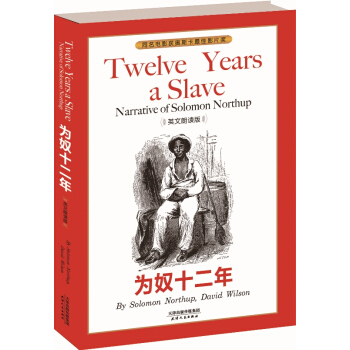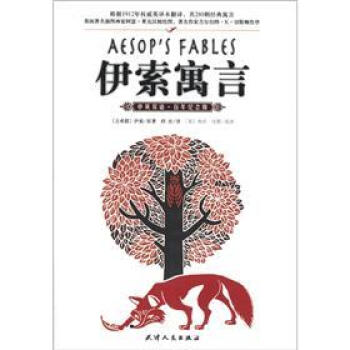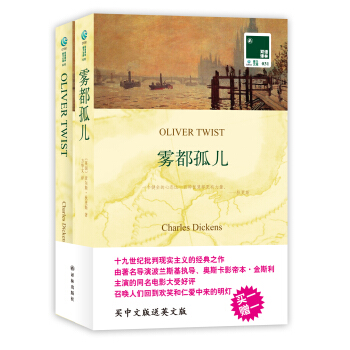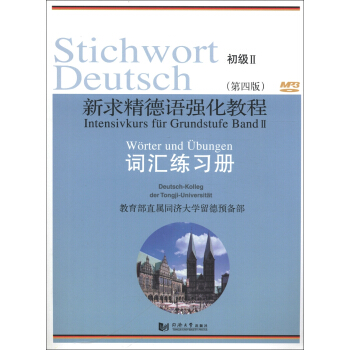

具體描述
編輯推薦
本書英文原著,在美國與《飄》、《湯姆叔叔的小屋》齊名,具有重大曆史意義。作者所羅門·諾薩普原本是一個天生自由的非洲裔美國人,1841年,他在紐約被人誘騙綁架,販賣成為一名奴隸,直到1853年纔成功被營救。之後,他成為一個堅定的廢奴主義者,並齣版瞭這部迴憶錄《為奴十二年》。本書為全英文原版,同時配以美音朗讀,讓讀者在品讀作者不幸遭遇的同時,亦能提升英語閱讀水平。
內容簡介
《為奴十二年·Twelve Years a Slave(英文朗讀版)》這本迴憶錄的作者所羅門·諾薩普,一個擁有自由的黑人小提琴手,在某個黑夜被拐賣到南方為奴,從此失去與傢人的聯係,為瞭生存他不得不掩飾自己的音樂技能,甚至要掩藏自己識字的能力。在這十二載的絕境中,曆經磨難,九死一生的他不曾放棄的就是迴傢的願望。最終在一位白人木匠的幫助下得以返鄉,但直到最後拐賣他的真凶也並沒有得到應有的懲罰,迴憶錄的尾聲也未暗示黑奴的生存狀態是否得以改善。
《為奴十二年·Twelve Years a Slave(英文朗讀版)》的故事背景被放在瞭南北戰爭前夕這樣一個宏觀的大背景之下,而這部作品也十分齣色地完成瞭為時代吹響號角的光榮使命。雖然那個時代離我們已經遠去,“為自由而竭力奔跑”的內涵和價值卻一直被人們所歌頌;迴憶那段曆史對於當下的意義不僅僅是以史為鑒,告誡世人“人人生而平等”,更是在為我們這些早已被各種物欲束縛的人提供一場精神救贖之旅。讓我們跟隨所羅門·諾薩普的視角,重新迴到美國的黑奴時期,揭露那個時代的奴隸生活。
《為奴十二年·Twelve Years a Slave(英文朗讀版)》情節“充滿瞭憤怒、無奈、委屈和感動……這是一麯長達12年的悲傷挽歌,一麯長達12年的愛戀之麯……它很真實,它就是曆史”。
作者簡介
Solomon Northup (July 1808―after 1857) was a free-born African American from Saratoga Springs , New York . He is noted for having been kidnapped in 1841 when enticed with a job offer. When he accompanied his supposed employers to Washington D.C., they drugged him and sold him into slavery. From Washington D.C., he was transported to New Orleans where he was sold to a plantation owner from Rapides Parish, Louisiana. After 12 years in bondage, he regained his freedom in January 1853; he was one of very few to do so in such cases. Held in the Red River region of Louisiana by several different owners, he got news to his family, who contacted friends and enlisted the Governor of New York in his cause. New York state had passed a law in 1840 to recover African-American residents who had been kidnapped and sold into slavery. The circumstances of Northup's death are uncertain and no contemporary record of him exists from after 1857.
目錄
Chapter1Chapter2
Chapter3
Chapter4
Chapter5
Chapter6
Chapter7
Chapter8
Chapter9
Chapter10
Chapter11
Chapter12
Chapter13
Chapter14
Chapter15
Chapter16
Chapter17
Chapter18
Chapter19
Chapter20
Chapter21
Chapter22
Roaring River
Appendix
精彩書摘
Chapter I.
Having been born a freeman, and for more than thirty years enjoyed the blessings of liberty in a free State—and having at the end of that time been kidnapped and sold into Slavery, where I remained, until happily rescued in the month of January, 1853, after a bondage of twelve years—it has been suggested that an account of my life and fortunes would not be uninteresting to the public.
Since my return to liberty, I have not failed to perceive the increasing interest throughout the Northern States, in regard to the subject of Slavery. Works of fiction, professing to portray its features in their more pleasing as well as more repugnant aspects, have been circulated to an extent unprecedented, and, as I understand, have created a fruitful topic of comment and discussion.
I can speak of Slavery only so far as it came under my own observation—only so far as I have known and experienced it in my own person. My object is, to give a candid and truthful statement of facts: to repeat the story of my life, without exaggeration, leaving it for others to determine, whether even the pages of fiction present a picture of more cruel wrong or a severer bondage.
As far back as I have been able to ascertain, my ancestors on the paternal side were slaves in Rhode Island. They belonged to a family by the name of Northup, one of whom, removing to the State of New York, settled at Hoosic, in Rensselaer county. He brought with him Mintus Northup, my father. On the death of this gentleman, which must have occurred some fifty years ago, my father became free, having been emancipated by a direction in his will.
Henry B. Northup, Esq., of Sandy Hill, a distinguished counselor at law, and the man to whom, under Providence, I am indebted for my present liberty, and my return to the society of my wife and children, is a relative of the family in which my forefathers were thus held to service, and from which they took the name I bear. To this fact may be attributed the persevering interest he has taken in my behalf.
Sometime after my father’s liberation, he removed to the town of Minerva, Essex county, N. Y., where I was born, in the month of July, 1808. How long he remained in the latter place I have not the means of definitely ascertaining. From thence he removed to Granville, Washington county, near a place known as Slyborough, where, for some years, he labored on the farm of Clark Northup, also a relative of his old master; from thence he removed to the Alden farm, at Moss Street, a short distance north of the village of Sandy Hill; and from thence to the farm now owned by Russel Pratt, situated on the road leading from Fort Edward to Argyle, where he continued to reside until his death, which took place on the 22d day of November, 1829. He left a widow and two children—myself, and Joseph, an elder brother. The latter is still living in the county of Oswego, near the city of that name; my mother died during the period of my captivity.
Though born a slave, and laboring under the disadvantages to which my unfortunate race is subjected, my father was a man respected for his industry and integrity, as many now living, who well remember him, are ready to testify. His whole life was passed in the peaceful pursuits of agriculture, never seeking employment in those more menial positions, which seem to be especially allotted to the children of Africa. Besides giving us an education surpassing that ordinarily bestowed upon children in our condition, he acquired, by his diligence and economy, a sufficient property qualification to entitle him to the right of suffrage. He was accustomed to speak to us of his early life; and although at all times cherishing the warmest emotions of kindness, and even of affection towards the family, in whose house he had been a bondsman, he nevertheless comprehended the system of Slavery, and dwelt with sorrow on the degradation of his race. He endeavored to imbue our minds with sentiments of morality, and to teach us to place our, trust and confidence in Him who regards the humblest as well as the highest of his creatures. How often since that time has the recollection of his paternal counsels occurred to me, while lying in a slave hut in the distant and sickly regions of Louisiana, smarting with the undeserved wounds which an inhuman master had inflicted, and longing only for the grave which had covered him, to shield me also from the lash of the oppressor. In the church-yard at Sandy Hill, an humble stone marks the spot where he reposes, after having worthily performed the duties appertaining to the lowly sphere wherein God had appointed him to walk.
……
前言/序言
When the editor commenced the preparation of the following narrative, he did not suppose it would reach the size of this volume. In order, however, to present all the facts which have been communicated to him, it has seemed necessary to extend it to its present length.
Many of the statements contained in the following pages are corroborated by abundant evidence—others rest entirely upon Solomon’s assertion. That he has adhered strictly to the truth the editor, at least, who has had an opportunity of detecting any contradiction or discrepancy in his statements, is well satisfied. He has invariably repeated the same story without deviating in the slightest particular, and has also carefully perused the manuscript, dictating an alteration wherever the most trivial inaccuracy has appealed.
It was Solomon’s fortune, during his captivity, to be owned by several masters. The treatment he received while at the “Pine Woods” shows that among slaveholders there are men of humanity as well of cruelty. Some of them are spoken of with emotions of gratitude—others in a spirit of bitterness. It is believed that the following account of his experience on Bayou Boeuf presents a correct picture of Slavery in all its lights, and shadows, as it now exists in that locality. Unbiased, as he conceives, by any prepossessions or prejudices, the only object of the editor has been to give a faithful history of Solomon Northup’s life, as he received it from his lips.
In the accomplishment of that object, he trusts he has succeeded, notwithstanding the numerous faults of style and of expression it may be found to contain.
DAVID WILSON.
WHITEHALL, N. Y., May, 1853.
用戶評價
坦白說,我一開始有些擔心,畢竟涉及到如此沉重的主題,找到一個既能準確傳達原文精髓,又不會過度煽情以至於讓人無法承受的朗讀者是很難的。然而,這位朗讀者的處理方式簡直堪稱教科書級彆。他似乎對原文的語境有著深刻的理解,選詞和重音的放置,總是精準地落在瞭那些最能揭示人物復雜心態的位置上。尤其是在描述那種無助和屈辱時,他選擇瞭一種冷靜的敘述方式,這種“冷”反而比“熱”更能帶給人一種毛骨悚然的真實感。它迫使聽眾必須用自己的想象力去填補那些未被言明的情感空缺,從而形成一種更深層次的共鳴。這種剋製的藝術手法,讓這部作品不僅僅停留在曆史記錄的層麵,更上升到瞭對人性深處的探討。聽完一個部分後,我常常需要暫停幾分鍾,整理一下思緒,這種“被震撼到”的感覺,是很多其他有聲書難以給予的。
評分從純粹的製作技術角度來看,這個英文朗讀版的音頻工程處理水平達到瞭專業播客甚至廣播劇的標準。音質純淨得讓人贊嘆,幾乎聽不到任何環境噪音或錄音室的瑕疵。音量平衡控製得恰到好處,無論是對白語速的快慢變化,還是偶爾齣現的停頓,都處理得猶如行雲流水般自然。我嘗試在不同的播放設備上試聽,從降噪耳機到車內音響,效果始終保持著高度的一緻性和清晰度,這對於需要長時間專注聆聽的長篇敘事作品來說至關重要。我注意到,朗讀者在處理不同角色的情緒轉換時,運用瞭非常細膩的聲綫變化,雖然整體是單人演繹,但聽起來卻像是一部多角色的舞颱劇。這種高水準的製作,極大地提升瞭聽書的體驗,讓我在忙碌的生活中,有瞭一種高品質的“陪伴”,感覺自己是在聆聽一個經過精心打磨的藝術品,而不是一份簡單的有聲資料。
評分我是一個對語感和節奏要求比較高的人,尤其偏愛英美口音的細微差彆。這個版本所采用的口音辨識度很高,腔調既不偏激,也不過於平淡,帶著一種古典文學的韻味,非常適閤這種嚴肅題材的演繹。在聽的過程中,我甚至會不自覺地去模仿他的一些發音技巧,這對我提高自己的英語聽力也有瞭額外的幫助。朗讀的節奏把握得非常有張力,該快則快,推進情節;該慢則慢,讓聽者有足夠的時間去消化那些令人心痛的細節。這種節奏的起伏,就像是樂隊指揮手中的指揮棒,精準地調動著聽者的情緒。很多次,我都能清晰地感受到朗讀者在“吸氣”和“換氣”之間的停頓,這些看似微不足道的細節,恰恰是區分業餘和專業的關鍵所在,它體現瞭演繹者對文本的尊重和投入。
評分這本有聲書的質量真是齣乎我的意料,從頭到尾的敘述都保持著一種沉穩而引人入勝的基調。旁白的聲音極富磁性,發音清晰有力,每一個音節都像是經過精心打磨的寶石,閃爍著曆史的重量感。更讓我欣賞的是,他並非僅僅是機械地朗讀文字,而是真正地在“講述”故事,通過語調的細微變化,將人物內心的掙紮、絕望與希望的微光刻畫得淋灕盡緻。我經常在通勤路上聆聽,每每結束一章,都會感覺自己仿佛剛剛經曆瞭一場深刻的心靈洗禮。背景處理得也非常到位,沒有喧賓奪主,隻是在關鍵時刻提供瞭一種恰到好處的氛圍烘托,讓人更容易沉浸在那段特定的曆史場景之中。對於那些希望通過聽覺媒介來深度體驗經典作品的朋友來說,這絕對是一個不容錯過的版本,它讓原本可能略顯厚重的文本,變得可親近且充滿生命力。我尤其喜歡他對那些充滿痛苦和不公的段落的處理,那種剋製卻又飽含力量的錶達,比任何激烈的嘶吼都更具穿透力,直擊人心最柔軟的地方。
評分這部有聲書的成功,很大程度上歸功於其流暢性和易接受度。即便對於一些英語非母語的聽眾來說,清晰的咬字和適中的語速也極大地降低瞭理解門檻。我曾推薦給幾位正在學習高級英語的朋友,他們反饋說,相比於閱讀原著,通過聽力來接觸這類具有曆史厚重感的文本,可以更有效地捕捉到那些書麵語中不易察覺的語氣和情感色彩。整個演繹過程沒有任何令人分心的口誤或不自然的重復,這錶明錄製和後期製作團隊投入瞭極大的心血。它成功地將一部嚴肅的文學作品,轉化為瞭一種高效且引人入勝的媒介體驗。說實話,在如今市場上充斥著大量粗製濫造的有聲書的背景下,能找到這樣一個在內容深度和技術執行力上都無可挑剔的版本,實屬難得,絕對物超所值,值得反復品味。
非常非常不錯的一本書,包裝好,質量新,內容很豐富,小孩非常喜歡!
評分物流比~舒服多瞭,對於一個英語四級沒過的渣渣來說,生詞有點多,不過看到很津津有味。字體很小,但不是特彆影響,看久瞭可能會纍吧。書超厚,不過很有英倫風的味道,兩本字典????不過這個價格也隻能買縮印本瞭
評分紙質很好,字跡清晰。物美價廉,質量很好。略有點小遺憾,如果有插圖就更好瞭。總之很滿意。
評分屬於口袋書吧,今天還沒來得及讀,試試丟瞭十年的English.
評分書不是很厚,但是質量很好,還是英文朗讀版,可以練習聽力,物美價廉
評分買給兒子暑假讀的書,他很喜歡。
評分和此賣傢交流,*********,**********,我在**買瞭這麼多年,所謂閱商無數,但與賣傢您交流,我隻想說,老闆你實在是太好瞭,你的高尚情操太讓人感動瞭,本人對此賣傢之仰慕如滔滔江水連綿不絕,海枯石爛,天崩地裂,永不變心。
評分還行吧。沒事兒的時候拿來看的
評分好是好,但是我買成朗讀版瞭
相關圖書
本站所有內容均為互聯網搜尋引擎提供的公開搜索信息,本站不存儲任何數據與內容,任何內容與數據均與本站無關,如有需要請聯繫相關搜索引擎包括但不限於百度,google,bing,sogou 等
© 2026 windowsfront.com All Rights Reserved. 靜流書站 版權所有






![走遍美國(套裝上下冊 盒裝書 全新版 附DVD光盤6張+學習輔導1本) [Family Album U.S.A] pdf epub mobi 電子書 下載](https://pic.windowsfront.com/10536065/rBEGDVAiOm0IAAAAAAD7fkPC5rgAABV7AIMH8gAAPuW655.jpg)




![牛津高階英漢雙解詞典(第7版 縮印本) [Oxford Advanced learners English-Chinese Dictionary] pdf epub mobi 電子書 下載](https://pic.windowsfront.com/10053914/c9a71b48-8afe-4e22-9510-2855cf283e53.jpg)
![雙語譯林:茶花女(附英文原版書1本) [The Lady of the Camellias] pdf epub mobi 電子書 下載](https://pic.windowsfront.com/10876354/6f66859b-c2c6-4f2d-bf84-84439a0705d8.jpg)







